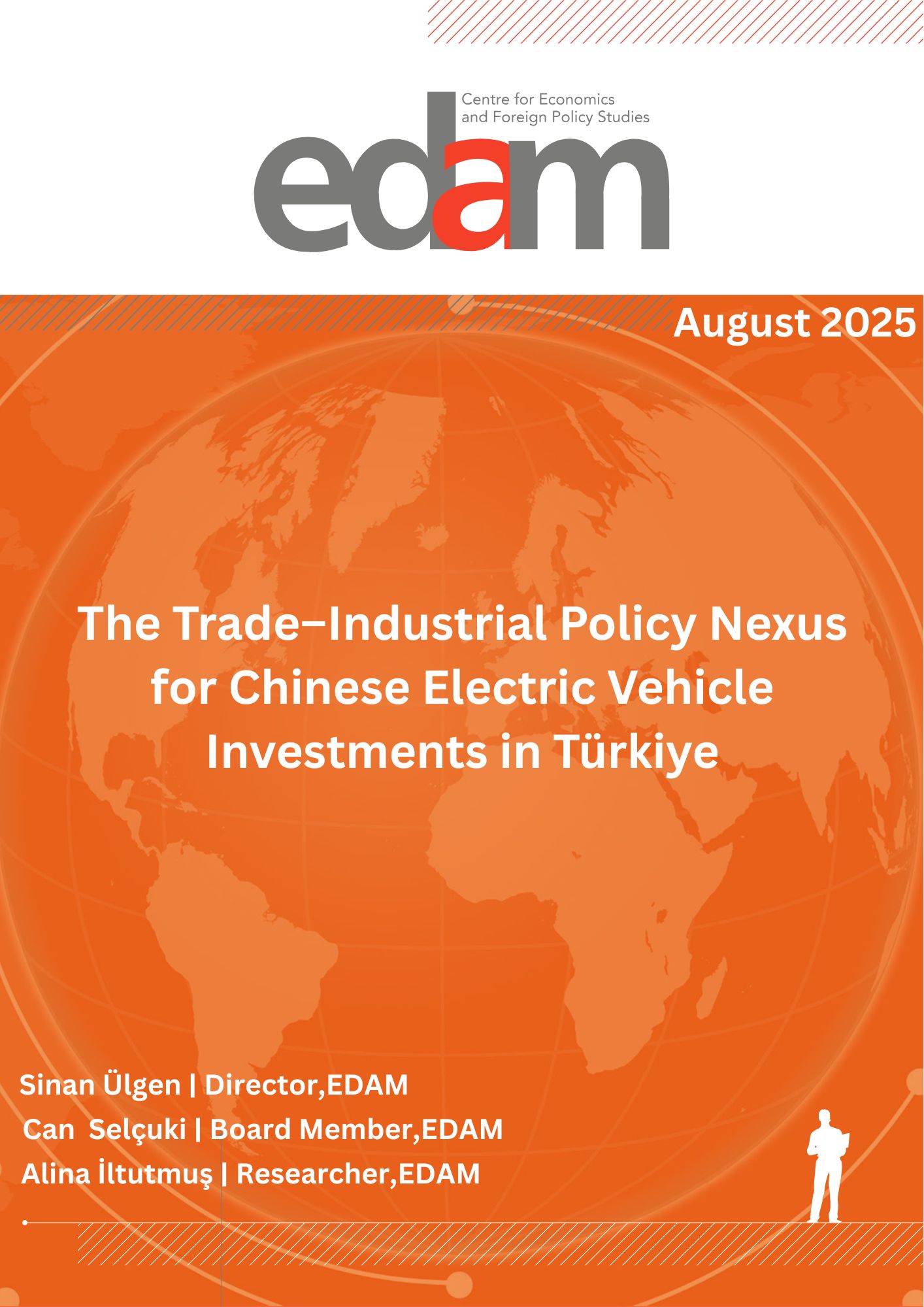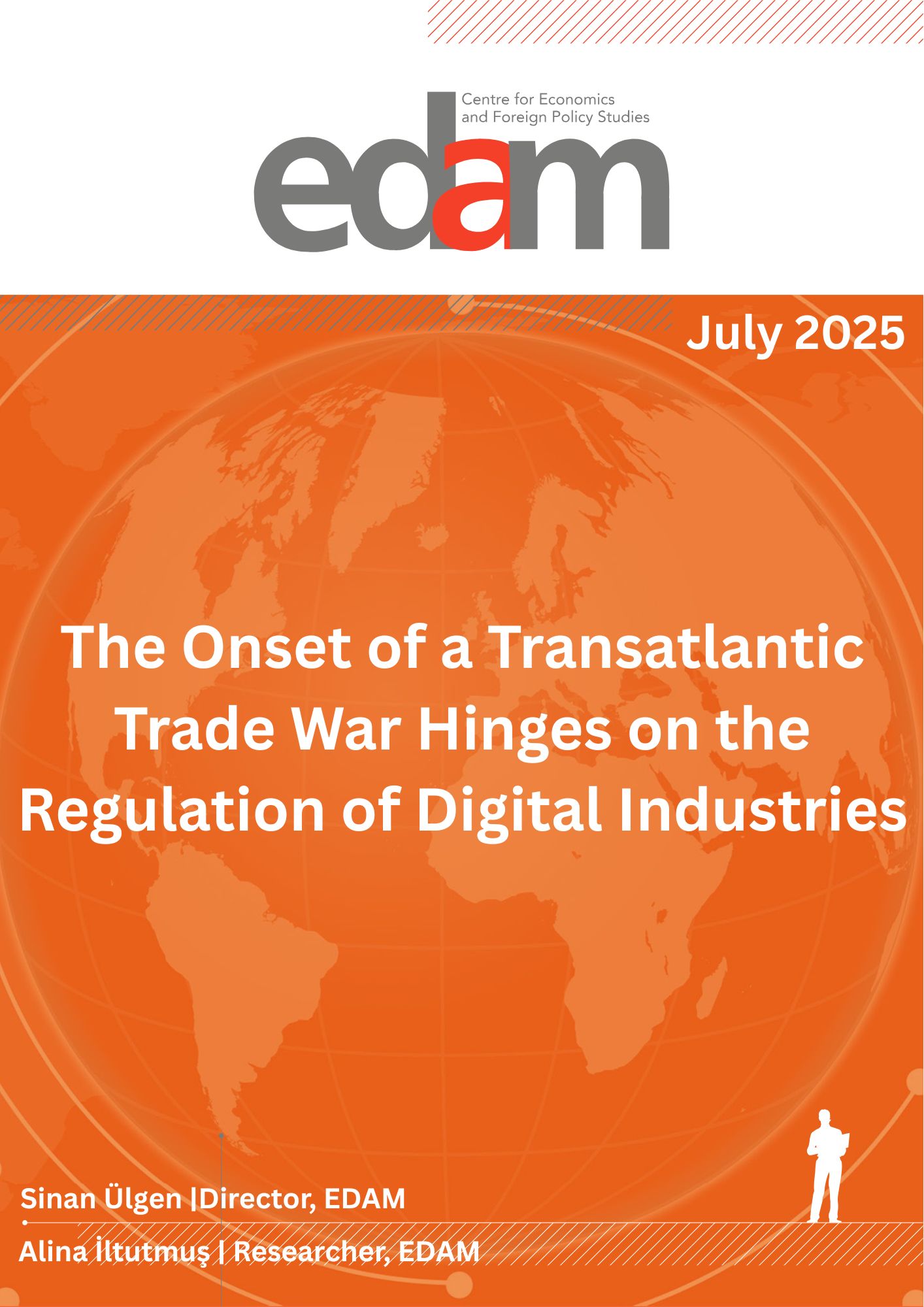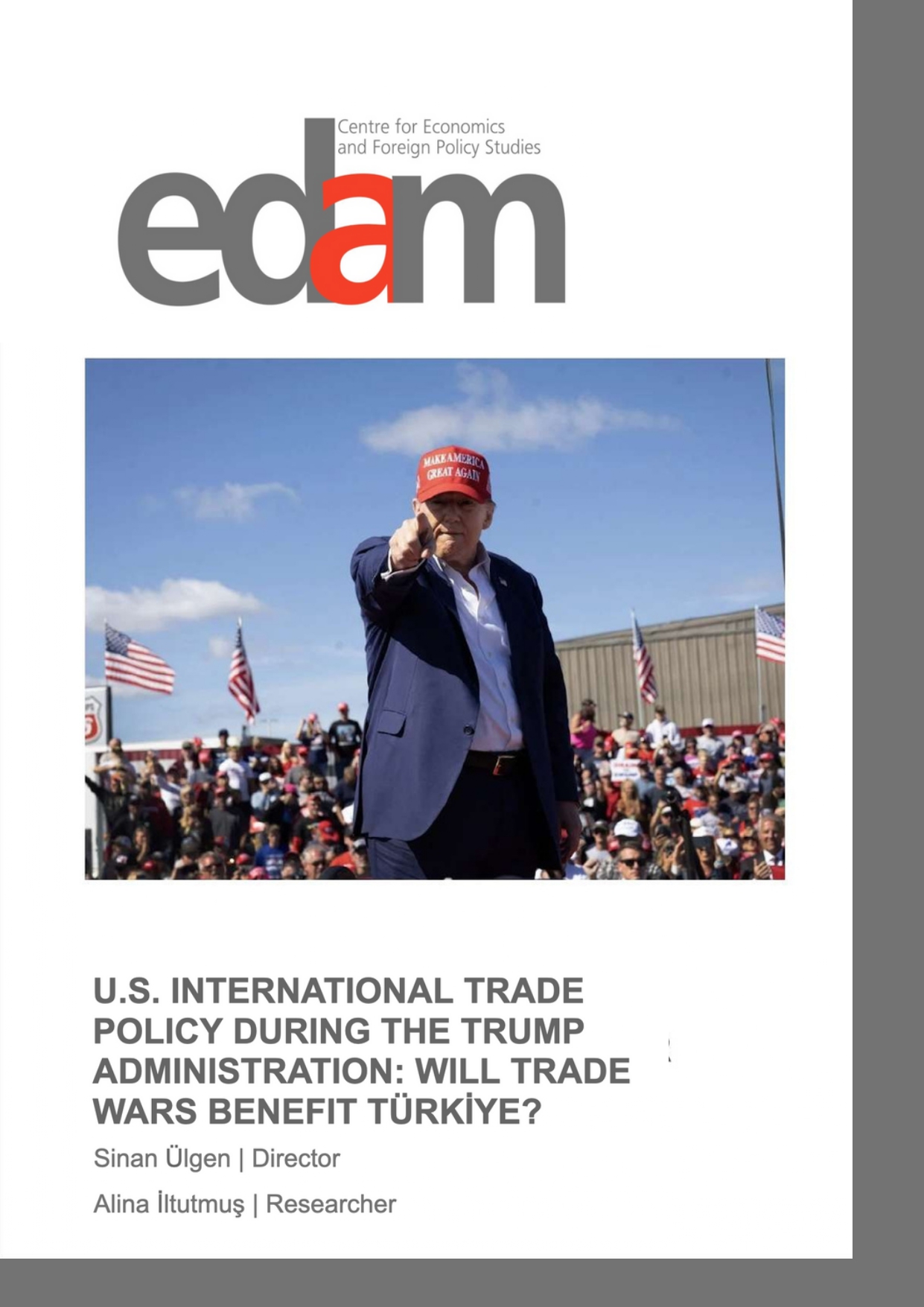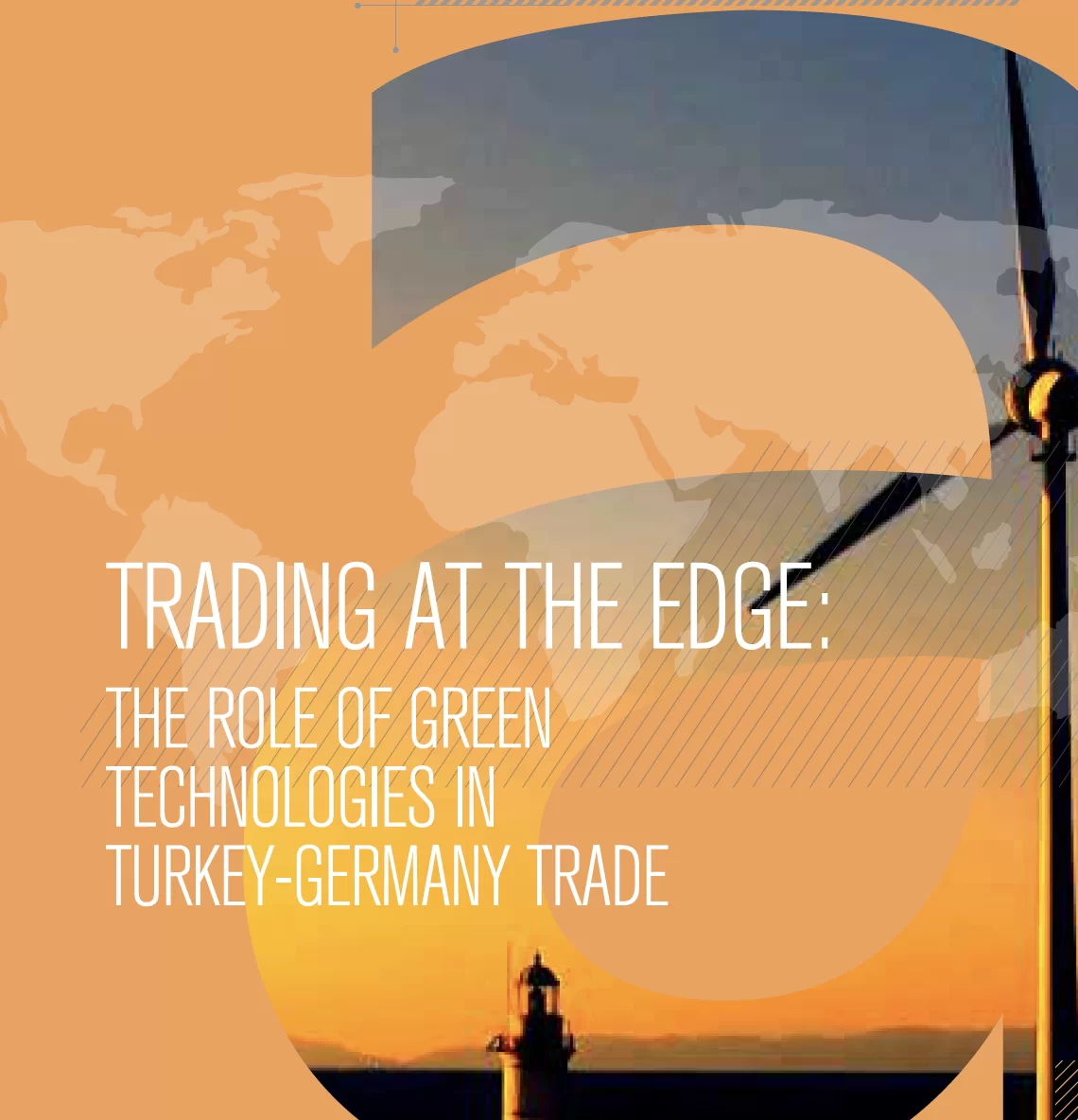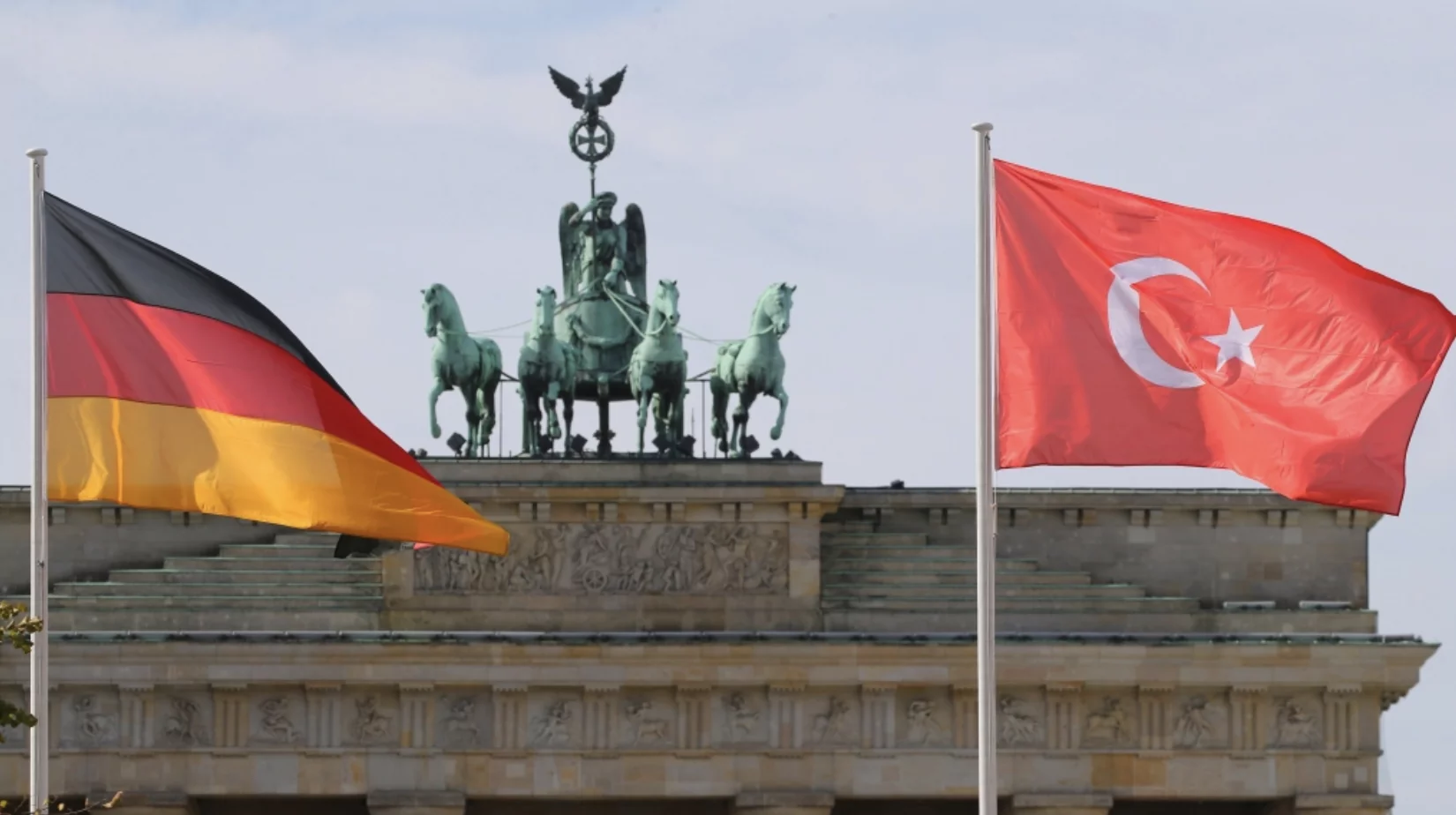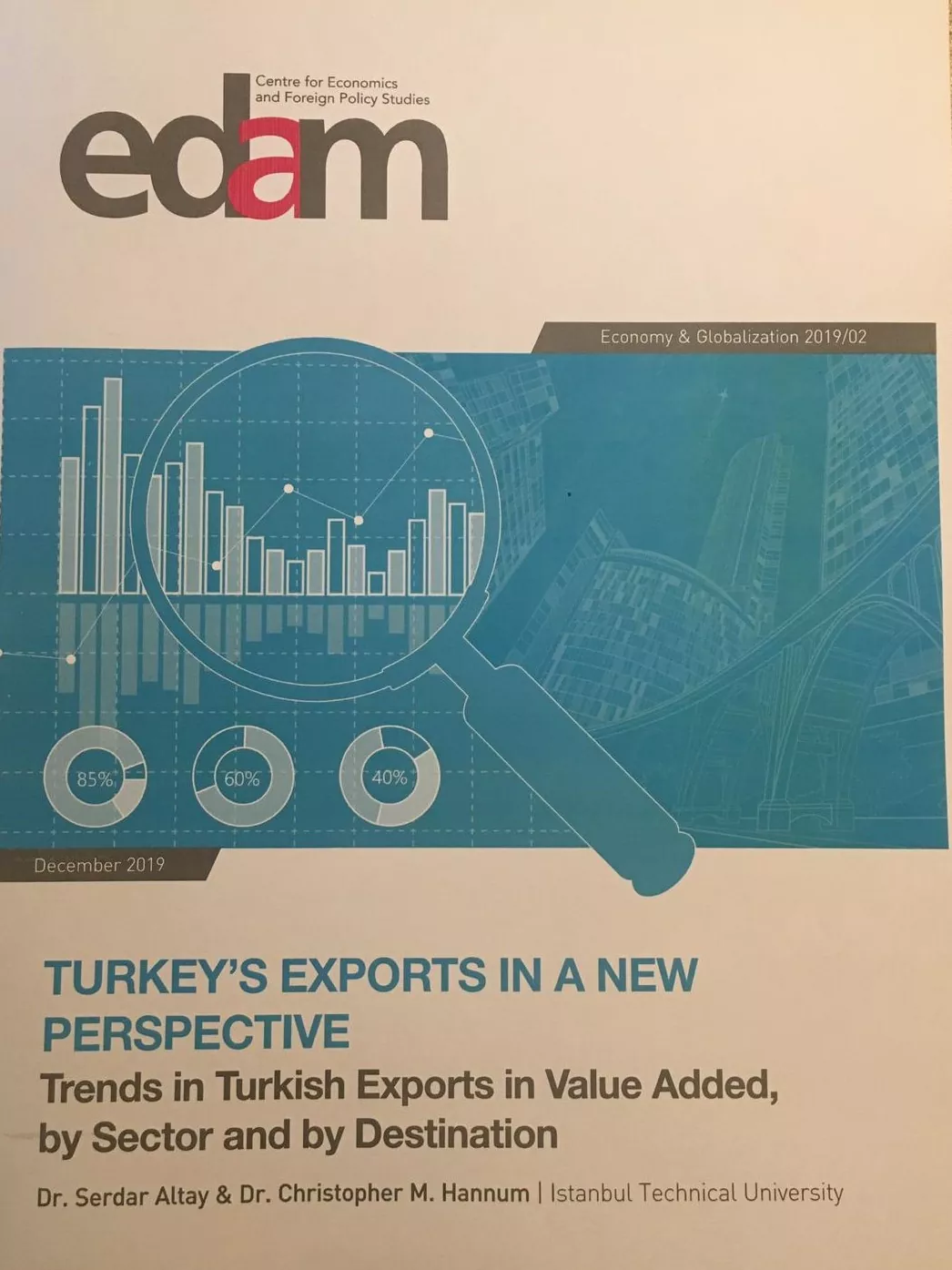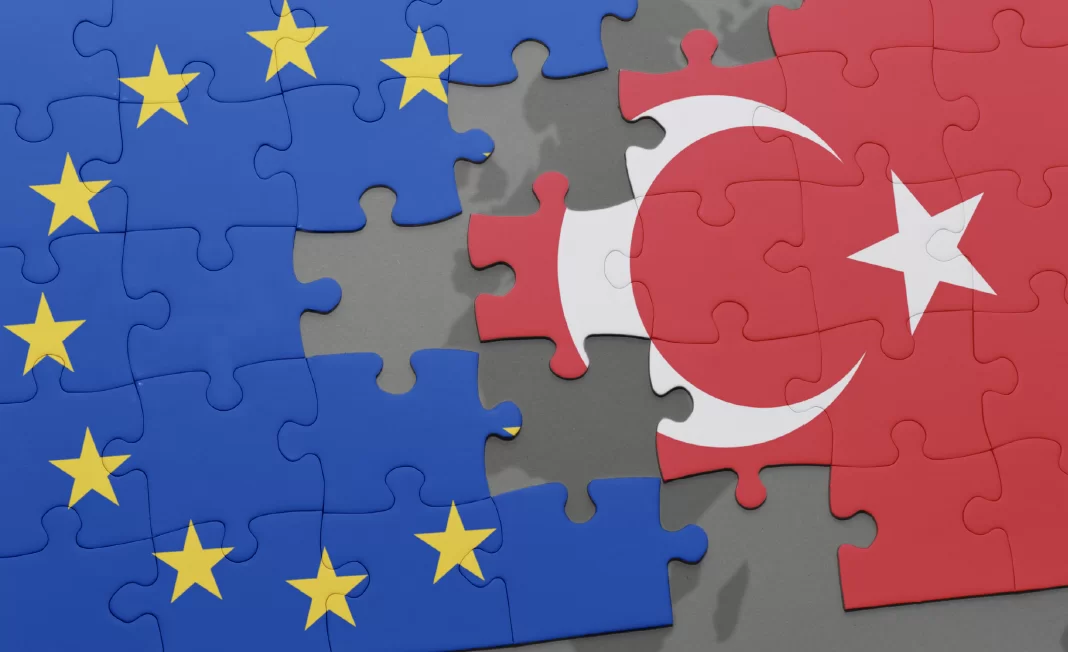
MODERNIZING THE TURKEY-EU CUSTOMS UNION: THE DIGITAL AGENDA AND THE GREEN DEAL
EXECUTIVE SUMMARY
The Customs Union came fully into being with the adoption of the Association Council Decision 1/95 at the end of 1995. In other words, it has now been more than two decades since the trade agreement between Turkey and the EU has been fully functional. Over time the EU has concluded new and more ambitious trade agreements with many of its trading parties. Deep and Comprehensive Trade Agreements with much wider coverage than the Customs Union with Turkey have entered into force. The Turkey-EU Customs Union is therefore in due of a modernisation that would firstly involve the expansion of its scope to services and possibly agriculture and secondly the upgrading of its institutional provisions like dispute settlement. Several studies have already examined these proposals in detail.
This study will approach the task of modernizing the Customs Union from a different perspective. Namely as a complement to the traditional thinking on the modernisation of the Customs Union, this analysis has focused on the implications of enlarging the Customs Union to two new policy areas so as to better reflect the evolving policy priorities of the EU and Turkey. The first area is the Digital Agenda and the second one is the Green Deal.
A. The Integration of the Digital Agenda in the Turkey- EU Customs Union
For this analysis, we need to define and conceptualize how a digital chapter can be incorporated in the efforts to modernize the Turkey-EU Customs Union. The first option is for Turkey to adopt the EEA model which would imply the transposition in the Turkish legislation all the digital policy related acquis of the European Union. Such a complete regulatory harmonisation would surely be effective in eliminating behind the border barriers to trade in digital goods and services and allow Turkey to be part of the EU’s Digital Single Market. It can be surmised that as a result many of the business barriers affecting digital services will be eliminated including restrictions on data localisation, cross border data transfers and e-commerce but also establishment and licensing restrictions for digital platforms.
But ultimately the exact model for the liberalisation of trade in services including digital services between Turkey and the EU is yet to be determined. As briefly discussed in this study, the negotiating parties will have a range of options. Trade liberalisation on the basis of policy harmonisation is undoubtedly the more ambitious option. It will most certainly lead to much higher degrees of market access given that many obstacles to trade in digital services relate to regulatory issues. Such a model would also provide more incentives for FDI. In that sense, Turkey’s objective to capture more FDI in digital industries would be better served with a trade liberalisation model that priorities regulatory harmonisation with the EU.
B. The Customs Union and the Green Deal
The second potentially novel component for the modernization of the Customs Union will be the incorporation of climate change linked policies within its scope. In other words, Turkey and the EU may want to explore how the Customs Union can be leveraged to accelerate Turkey’s convergence with the EU Green Deal. Viewed from this perspective, Turkey’s objectives are likely to be twofold. First Ankara will want to identify a strategy that would exempt Turkey from the scope of the Carbon Border Adjustment Measures – CBAM announced by the European Commission and slated for implementation in 2023 with a transitional period of 3 years. These measures are to impact Turkey’s exports in the industries covered by the regulation.
But in addition to negatively affecting the competitiveness of Turkish exports to EU markets, the CBAM regime also represents a serious hindrance for the integrity of the Turkey-EU customs union. A customs union represents a higher degree of trade integration compared to a free trade area because the signatory parties also commit themselves to follow a common commercial policy. That is why bilateral trade under a customs union regime is carried out on the basis of the principle of the free circulation of goods which, unlike a free trade area, does not require a complicated set of rules of origin. Under a customs union, goods can be exported freely without the need to prove their origin. And so it is that under the Turkey-EU customs union, exports from Turkey to the EU are carried out without controlling the origin of goods. The unilateral introduction of CBAMs by the EU is a threat to the integrity of the customs union arrangement in a situation where only one party of the customs union (EU) has a carbon tax policy. Secondly, Turkey will want to have access to the EU funding that will facilitate Turkey’s transition to a greener economy.
These goals can best be advanced with the full activation of The Turkey-EU High Level Climate Dialogue. This platform should be viewed as a strategic joint platform designed to leverage the EU’s capabilities to help with Turkey’s transition to a greener economy based on a common understanding that the climate change theme and the transition to a green economy should be a top priority for the Turkey-EU agenda. The incorporation of the climate change as a theme in the Customs Union would further strengthen the role of the High Level Climate Dialogue.
The platform would be used to align the two contracting parties on climate change and the green transition. Firstly the modalities of a possible exemption to be granted to Turkey on CBAM would be discussed. Secondly the strategic planning of EU origin climate funding earmarked for Turkey would be carried out. Thirdly the platform could also be used to ensure diplomatic convergence between the positions of Turkey and the EU in the international climate negotiations.
Of key importance in the short term would be the EU’s political support to Turkey’s position to be seen as a developing country for the purposes of multilateral climate negotiations and funding. For long Turkey wanted to be re-categorized as an Annex II country under the Kyoto Protocol. But despite many attempts, the aspired status change which would have enabled Turkey to be treated as a developing country was not achieved. Such an amendment requires a consensus within all the signatory parties. As a result, Ankara has now ratified the Paris Climate Agreement under the reserve that it sees itself as a developing country. A potential EU backing of Turkey’s position at the COP 27 that will be held in November 2021 in Glasgow and beyond would create a much welcome momentum for the climate dimension of the Turkey-EU relationship.
C. Overarching Policy Recommendations
The modernization of the Turkey-EU Customs Union has been on the agenda for the past few years as the European Commission had submitted its mandate of negotiation to the EU Council back in December 2016. Since then, the Council has failed to green light the start of this new round of negotiations essentially on political grounds. The mandate and the associated impact analysis were centered on the traditional elements of the trade relationship including the enlargement of its scope to services and agriculture. But they did not contemplate the expansion of this regime to the Digital Agenda and the Green Deal. And yet both Turkish and EU authorities have in more recent years emphasized the prospect of embedding these critical policy spheres in the overall agenda of Turkey-EU relations. There is therefore a clear need at the institutional level as well to revise and update the supporting analysis and documentation to clear the path for the proper inclusion of the Digital Agenda and the Green Deal in the scope of the Turkey-EU Customs Union. This report may provide some elements of reflection that could be useful for this necessary work stream.
It would indeed be vital to expand the scope of the Customs Union in this direction. Given the recent and justified political and economic emphasis on digital and the green transformation, Ankara and Brussels should not sidestep the opportunity to explore and identify the right formulas to integrate these areas in the remodeled Customs Union especially since the process will be guided by the overarching aim of modernizing this critical rules-based regime that underpins the Turkey-EU trade relationship. This aim would be all the more important since the publication in early 2021 of the European Commission’s Trade Policy Review which has set out very clearly that the EU’s new strategy should further integrate EU trade policy within the bloc’s economic priorities as reflected in the Green Deal and the European Digital strategy. The Turkey-EU Customs Union should not be an exception to this laudable objective.
